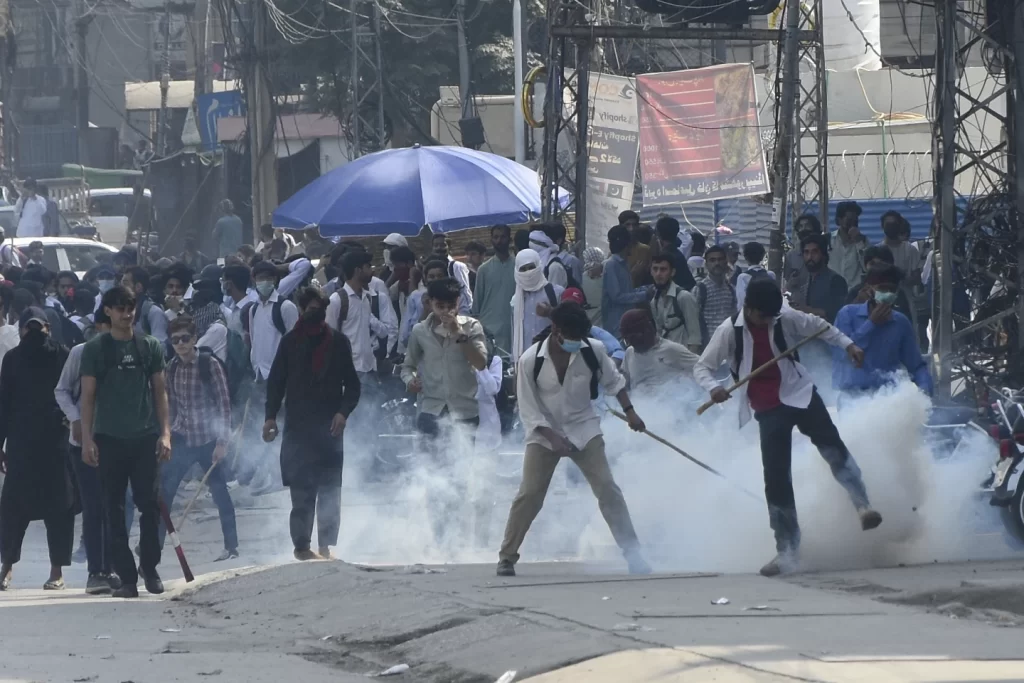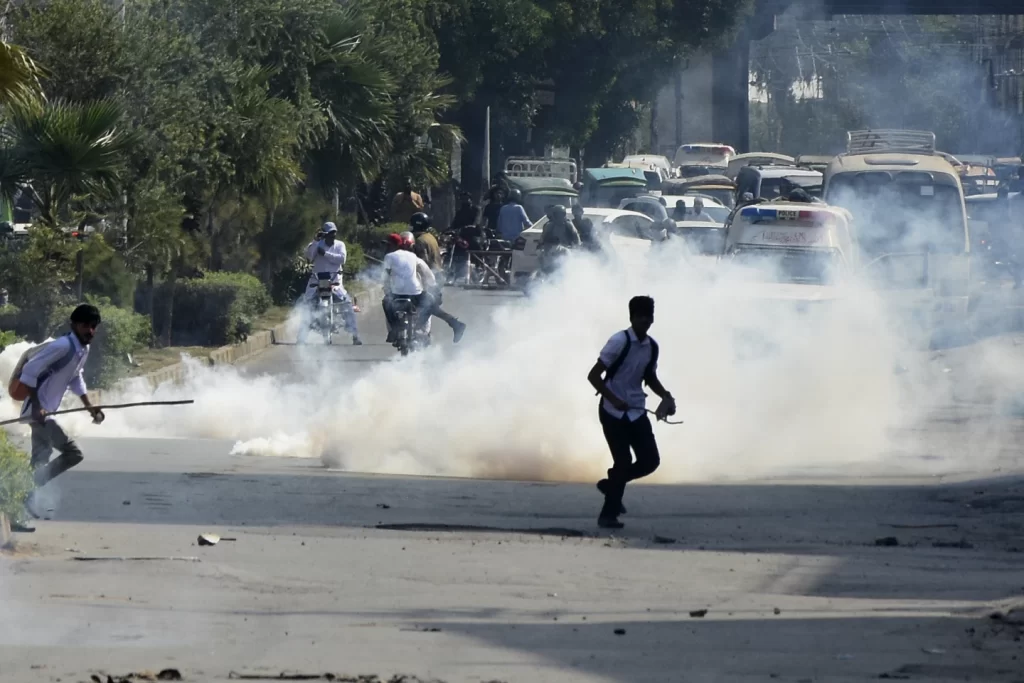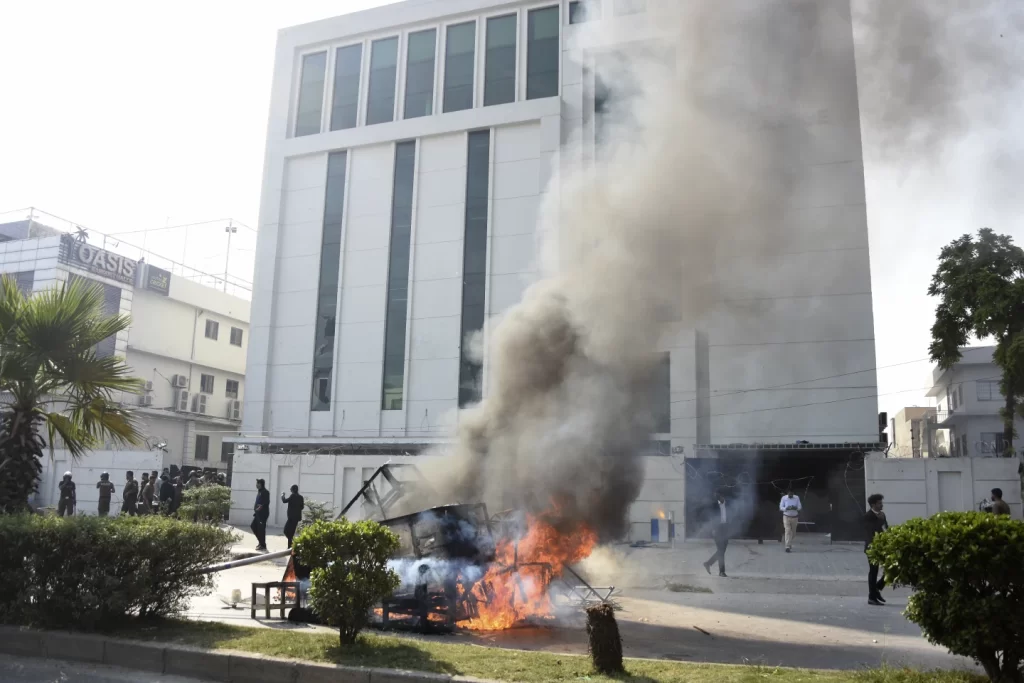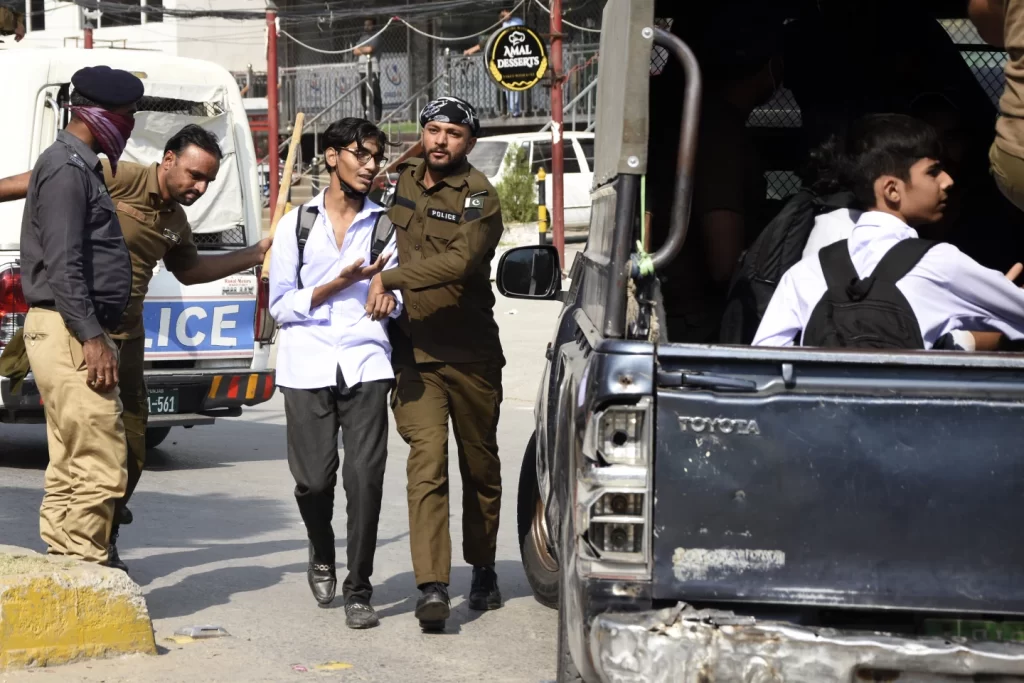Pakistani police resorted to firing tear gas and charging at student protesters in Rawalpindi on Thursday, as demonstrations over an alleged on-campus rape in Lahore intensified and spread to multiple cities. The escalating unrest highlights growing tensions over sexual violence and campus safety in Pakistan.

The confrontation in Rawalpindi, Punjab province, began when hundreds of students gathered outside a campus to protest. The demonstration quickly turned violent as protesters burned furniture, blocked a major road, and ransacked a college building. In response, police used tear gas and baton charges to disperse the crowd. Police official Mohammad Afzal reported that 250 people, primarily students, were arrested for disturbing the peace.
These protests stem from reports of an alleged rape at the Punjab Group of Colleges in Lahore, which gained widespread attention on social media. However, authorities, including the province’s chief minister and college administration, have denied the occurrence of the assault, as have the alleged victim’s parents.

The unrest has spread to at least four cities, with earlier clashes in Lahore resulting in injuries to over two dozen college students who were demanding justice for the alleged victim. In Gujrat, another city in Punjab province, a security guard died during confrontations between student protesters and police on Wednesday.
Sexual violence against women is a prevalent but underreported issue in Pakistan, largely due to the stigma attached to it in the conservative society. The Sustainable Social Development Organization reported 7,010 rape cases in Pakistan in 2023, with almost 95% occurring in Punjab. However, experts believe the actual number may be higher due to underreporting.

The spontaneous nature of these protests is noteworthy, given that student unions have been banned in Pakistan since 1984. Usman Ghani, head of the youth wing of the opposition Jamaat-e-Islami party, has called for an end to this ban, suggesting that student unions might have helped resolve the matter without violence.
Hasna Cheema from the rights group Aurat Foundation criticized the handling of such sensitive matters by Pakistani police and media, stating they often exacerbate situations instead of resolving them.

As the protests continue to escalate, there are growing calls for improved campus safety measures, better handling of sexual assault cases, and broader societal changes to address and prevent sexual violence in Pakistan. The use of tear gas and mass arrests by police has further inflamed tensions, raising concerns about the authorities’ approach to managing student unrest and addressing the underlying issues fueling these protests.



